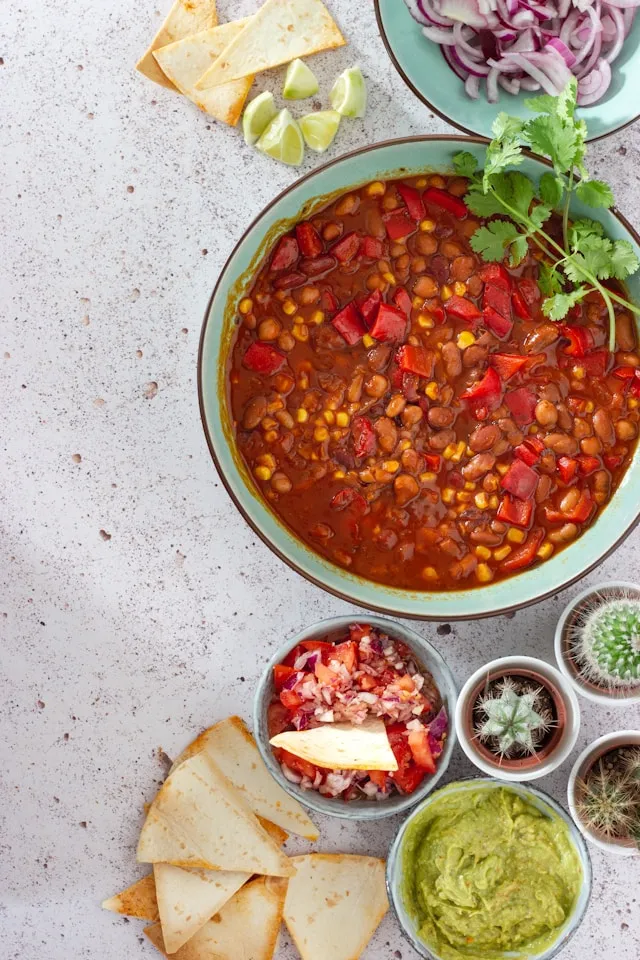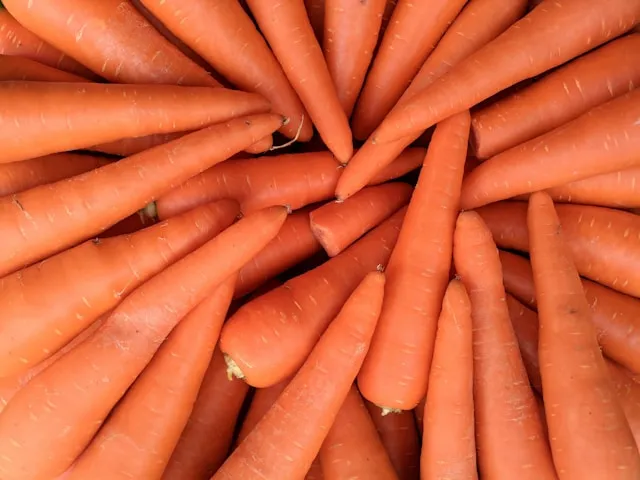Vegetarian diet

Vegetarian diet
A vegetarian diet consists of consuming plants and plant-based foods, excluding meat, fish, and poultry. The main idea behind a vegetarian diet is to adopt a lifestyle that promotes compassion, health, and environmental sustainability. The core principles of vegetarianism include minimizing harm to animals, reducing carbon footprint, and fostering a diet rich in whole, unprocessed foods. Vegetarians may choose to adopt a lacto-ovo-vegetarian diet, which includes dairy and eggs, or a vegan diet, which excludes all animal products. By adopting a vegetarian diet, individuals can improve their overall health, well-being, and the well-being of the planet.
Principles of the Vegetarian diet
A vegetarian diet is a way of eating that does not involve consuming meat, fish, or poultry. The main idea behind a vegetarian diet is to focus on plant-based foods, such as fruits, vegetables, grains, and legumes. The principles of a vegetarian diet largely revolve around promoting overall health and well-being, while also considering animal welfare and environmental sustainability. A well-planned vegetarian diet can provide all the necessary nutrients for optimal health, and may even offer benefits such as lower cholesterol levels and reduced risk of chronic diseases.


What foods are in the Vegetarian diet?
A vegetarian diet excludes meat, fish, and poultry, but may include a variety of plant-based foods. Some common foods in a vegetarian diet include fruits, vegetables, whole grains, legumes, nuts, and seeds. Additionally, vegetarian diets may also include dairy products and eggs, depending on the specific type of vegetarianism practiced. There are several types of vegetarian diets, including lacto-ovo-vegetarian, lacto-vegetarian, ovo-vegetarian, and pescetarian. Vegetarians may also consume tofu, tempeh, and other plant-based protein sources.
What foods are NOT in the Vegetarian diet?
When it comes to a vegetarian diet, there are several foods that are typically excluded. These include:
Meat from animals like beef, pork, lamb, and chicken
Fish and seafood
Organ meats like liver and kidney
Gelatin and other animal-derived products
Additionally, some vegetarians may also avoid foods that are processed using animal products, such as refined sugar, some types of wine, and certain types of cosmetics. It’s always best to check with a specific diet or philosophy for specific guidelines.


What is the Main Idea of the Vegetarian Diet
The main idea of a vegetarian diet is to exclude meat, fish, and poultry from one’s diet, focusing instead on plant-based foods. This lifestyle choice often stems from ethical, environmental, or health concerns. Vegetarians may choose to follow a lacto-ovo-vegetarian diet, which includes dairy products and eggs, or a vegan diet, which excludes all animal products. Vegetarian diets typically emphasize fruits, vegetables, whole grains, and legumes, providing a balanced intake of essential nutrients. By adopting a vegetarian diet, individuals can lower their risk of chronic diseases, reduce their environmental footprint, and align with their personal values.
The Way to follow the Vegetarian diet properly
To follow a vegetarian diet properly, consider the following tips:
Variety and Balance: Ensure your diet includes a variety of fruits, vegetables, whole grains, legumes, nuts, and seeds to obtain a broad spectrum of essential nutrients.
Protein Sources: Incorporate protein-rich foods such as beans, lentils, tofu, tempeh, quinoa, and seitan to meet your daily protein needs.
Essential Nutrients: Pay attention to consuming essential nutrients like iron, calcium, vitamin D, vitamin B12, omega-3 fatty acids, and zinc through fortified foods or supplements to prevent deficiencies.
Meal Planning: Plan your meals to ensure you’re getting a balanced mix of nutrients and explore new vegetarian recipes to keep your diet interesting and satisfying.
Read Labels: When purchasing processed vegetarian products, read the labels to check for added sugars, sodium, and artificial additives.
Seek Support: Connect with other vegetarians for support and recipe ideas. You can also consult a registered dietitian to ensure you’re meeting your nutritional needs.
By following these guidelines, you can effectively adhere to a vegetarian diet while maintaining good health and well-being.


Is the Vegetarian Diet compatible with high physical activity and athletics?
Yes, a well-planned vegetarian diet can be compatible with high physical activity and athletic performance. With proper attention to nutrient intake, vegetarian athletes can meet their energy needs and support their exercise demands effectively. Here are some key points to consider:
Caloric Needs: Vegetarian athletes should ensure they consume an adequate number of calories to support their activity levels. This often means incorporating nutrient-dense foods such as whole grains, legumes, fruits, vegetables, nuts, and seeds.
Protein Sources: Opt for a variety of plant-based protein sources such as beans, lentils, tofu, tempeh, quinoa, nuts, seeds, and plant-based protein powders to support muscle repair and growth.
Iron: Plant-based iron sources include lentils, tofu, spinach, chickpeas, and fortified cereals. Consuming vitamin C-rich foods alongside iron sources can enhance iron absorption.
Calcium and Vitamin D: Include calcium-fortified plant milks, fortified juices, tofu, and leafy greens in your diet to support bone health. Additionally, consider vitamin D supplementation if sun exposure is limited.
Omega-3 Fatty Acids: Incorporate plant-based sources of omega-3s such as flaxseeds, chia seeds, walnuts, and algae-based supplements to support inflammation regulation and heart health.
Hydration: Proper hydration is crucial for all athletes. Ensure you drink an adequate amount of water before, during, and after exercise.
Consultation: If you have specific concerns or nutritional requirements based on your sport or activity level, consider consulting with a registered dietitian experienced in working with vegetarian athletes.
By paying attention to these considerations and planning your meals to meet your nutrient needs, you can maintain high physical activity levels and excel in athletics while following a vegetarian diet.
Read the article about vegan!!! athletes: https://www.veganfoodandliving.com/features/vegan-athletes-plant-based-diet/
Does the Vegetarian diet help you lose weight and become slim?
A well-planned vegetarian diet can indeed aid in weight management and support efforts to achieve a healthy weight. Here’s why:
High Fiber Content: Vegetarian diets tend to be rich in fiber from fruits, vegetables, whole grains, and legumes. Fiber helps promote feelings of fullness, which can reduce overall calorie intake and support weight management.
Lower Caloric Density: Many plant-based foods are lower in caloric density compared to animal products, making it easier to consume a larger volume of food while managing calorie intake.
Emphasis on Whole Foods: A vegetarian diet emphasizes whole, unprocessed foods, which can help limit the intake of added sugars, unhealthy fats, and excessive calories often found in processed and fast foods.
Healthy Fats: By incorporating sources of healthy fats such as nuts, seeds, and avocados, a vegetarian diet can support overall heart health and provide satiety.
Increased Intake of Nutrient-Dense Foods: Vegetarian diets can be rich in essential nutrients, vitamins, and minerals, supporting overall health and well-being during weight loss.
Potential for Lower Intake of Saturated Fats: A well-rounded vegetarian diet often features lower intake of saturated fats from animal products, which may have potential benefits for heart health and weight management.
It’s important to note that simply being vegetarian does not guarantee weight loss. The overall quality and balance of the diet, along with portion sizes and physical activity, play crucial roles in achieving and maintaining a healthy weight. It’s always advisable to consult with a healthcare professional or a registered dietitian when embarking on a weight loss journey to ensure that your dietary choices align with your specific needs and goals.


Is the Vegetarian Diet safe for health and anyone can follow it? Do I need to consult a nutritionist to start following this diet?
A well-planned vegetarian diet can be safe and nutritious for individuals of all ages and stages of life, including children, adolescents, adults, pregnant women, and older adults. However, it’s essential to approach vegetarianism in a thoughtful and informed manner to ensure you meet your nutritional needs. Here are some key points to consider:
Variety: Ensure your diet includes a wide variety of fruits, vegetables, whole grains, legumes, nuts, seeds, and plant-based protein sources to obtain a broad range of essential nutrients.
Essential Nutrients: Pay attention to consuming nutrients that are sometimes lacking in a vegetarian diet, such as iron, calcium, vitamin D, vitamin B12, omega-3 fatty acids, and zinc. You may need to incorporate fortified foods or supplements to meet these needs.
Consultation: While many people can successfully follow a vegetarian diet without issue, consulting with a registered dietitian or nutritionist, especially if you have specific health concerns, dietary restrictions, or unique nutritional needs, can be beneficial. A professional can help you tailor your vegetarian diet to meet your individual requirements.
Transitioning: If you’re new to vegetarianism, it may be helpful to gradually transition by experimenting with plant-based meals, finding alternatives to your favorite dishes, and learning about proper nutrient balance.
Listen to Your Body: Pay attention to how your body responds to the dietary changes. If you experience any adverse effects or deficiencies, seek guidance from a healthcare provider or dietitian to address those issues.
In conclusion, while a vegetarian diet can be suitable for many individuals and offer numerous health benefits, personalized advice from a nutrition professional can help you optimize your dietary choices and ensure you’re meeting your nutritional needs. If you have any concerns or questions about adopting a vegetarian diet, consulting a registered dietitian or nutritionist is always a wise decision.
Is the Vegetarian diet good for the heart?
Yes, a well-planned vegetarian diet can be beneficial for heart health. Here’s how:
Lower Saturated Fat Intake: Vegetarian diets often contain lower levels of saturated fats, which are commonly found in animal products. Reducing saturated fat intake can help lower cholesterol levels and decrease the risk of heart disease.
High in Fiber and Antioxidants: Vegetarian diets are typically abundant in fiber from fruits, vegetables, whole grains, and legumes. Fiber helps lower cholesterol levels and improve heart health. Additionally, the high antioxidant content of plant-based foods can protect against oxidative stress and inflammation, which are associated with heart disease.
Healthy Fats: Many vegetarian diets emphasize sources of healthy fats such as nuts, seeds, and plant-based oils, which can have a positive impact on heart health.
Lower Blood Pressure: Research has shown that vegetarian diets can be associated with lower blood pressure, a risk factor for heart disease.
Whole Foods Emphasis: Vegetarian diets are often rich in whole, unprocessed foods, which can contribute to overall heart health.
Lower Risk of Cardiovascular Disease: Studies have indicated that individuals following a vegetarian diet may have a lower risk of developing cardiovascular disease compared to non-vegetarians.
It’s important to note that simply adopting a vegetarian diet does not automatically guarantee heart health. The overall quality of the diet, physical activity levels, appropriate portion sizes, and other lifestyle factors also play significant roles in cardiovascular well-being. As with any major dietary changes, it’s advisable to consult with a healthcare provider or registered dietitian to ensure that your dietary choices align with your specific health needs.


Vegetarian diet
A vegetarian diet is a type of eating pattern that excludes meat, fish, and poultry, with the main goal of reducing animal consumption for health, environmental, and moral reasons. The key principles of a vegetarian diet are choosing plant-based foods as the primary source of nutrition, with flexibility in incorporating eggs, dairy, and occasionally, small amounts of animal-derived products like honey. A well-planned vegetarian diet can provide adequate protein, fiber, and essential nutrients while promoting a reduced risk of chronic diseases, such as heart disease, type 2 diabetes, and certain types of cancer.

